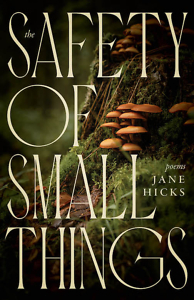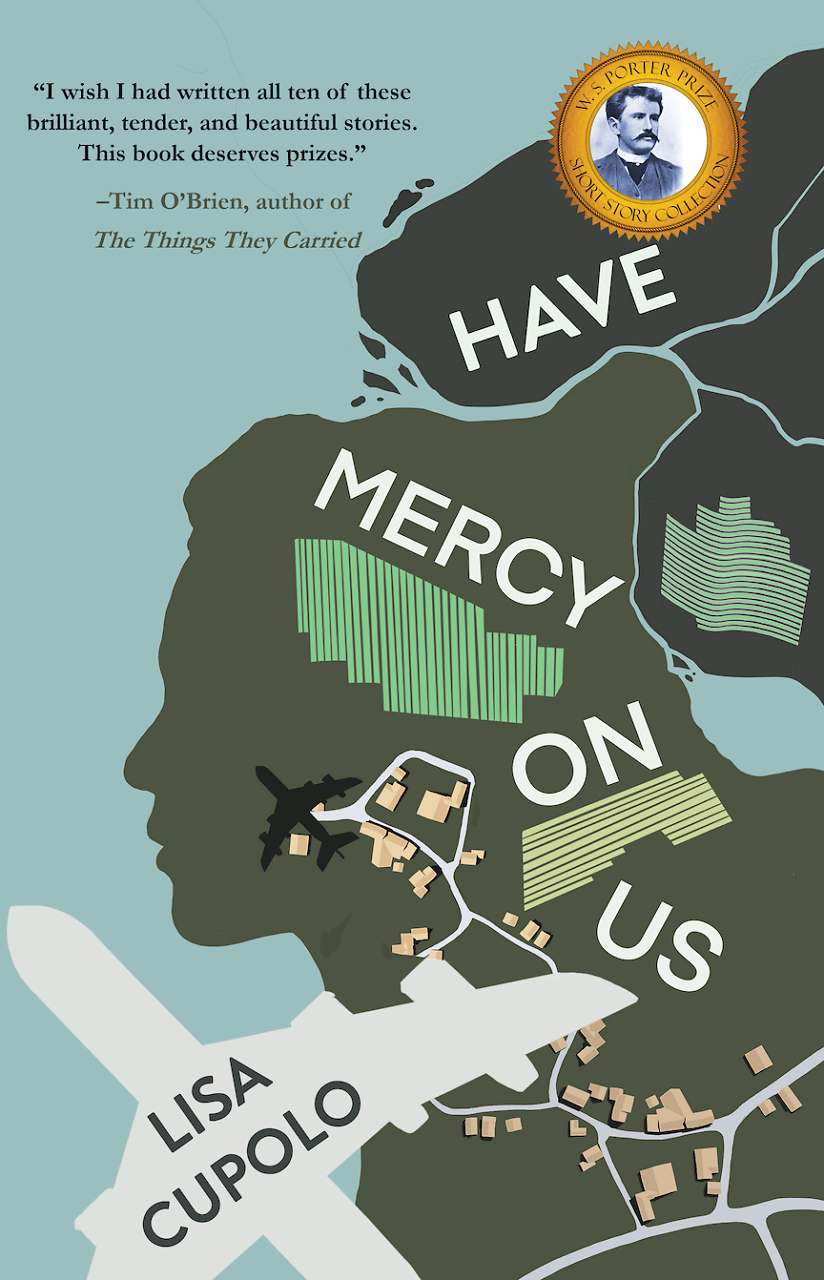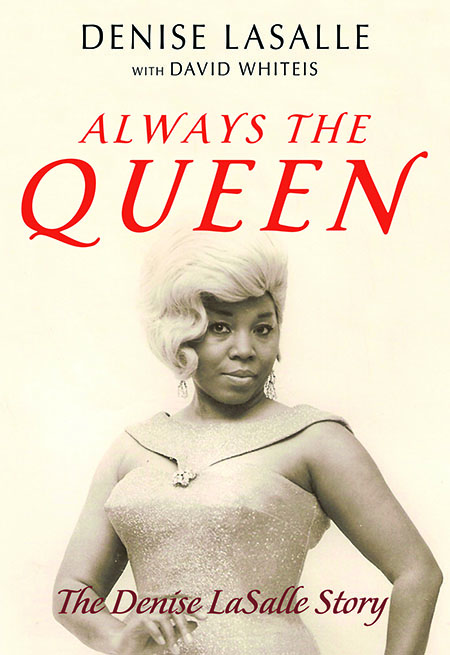In the Presence of the Unseen
Poet Jane Hicks uncovers hidden worlds in The Safety of Small Things
Throughout East Tennessee poet Jane Hicks’ stunning new collection, The Safety of Small Things, the unseen elements of our lives reveal themselves in vibrant, insistent ways. Sometimes they console. Sometimes they menace. With masterful discernment, Hicks enables us to sense the many-layered truths contained in each moment and to marvel at their resonance.
 Hicks wastes no time in establishing the book’s revelatory vision. The brief, initiatory poem “Into Night” draws us into the winter dark, which “begins with the fire of leaves, the whisper of ghosts.” She then opens up the body of the collection with an unforgettable image: “Ten days into a drug-induced coma, Mother plays cards with the unseen.” This poem, titled simply “The Unseen,” conjures a silent scene. A woman, unconscious yet purposeful in her movements: “Her fingers hold, shuffle, and release across the pale blanket.” Nurses come and go, providing care, and “she plays on” — the game real to her inner world, invisible to everyone who is watching her and hoping she will wake.
Hicks wastes no time in establishing the book’s revelatory vision. The brief, initiatory poem “Into Night” draws us into the winter dark, which “begins with the fire of leaves, the whisper of ghosts.” She then opens up the body of the collection with an unforgettable image: “Ten days into a drug-induced coma, Mother plays cards with the unseen.” This poem, titled simply “The Unseen,” conjures a silent scene. A woman, unconscious yet purposeful in her movements: “Her fingers hold, shuffle, and release across the pale blanket.” Nurses come and go, providing care, and “she plays on” — the game real to her inner world, invisible to everyone who is watching her and hoping she will wake.
Hicks turns repeatedly to the nature of shadows, exploring with equal insight what they hide and what they expose. Several poems, including the excellent “Safe Route,” describe the experience of witnessing a solar eclipse among the assembled patients and staff at a radiation clinic. “Outside, we watched the sunbeam crescent shadows through shared / glasses / and pinhole viewers. A shiny kitchen colander, held high, threw a / hundred / bitten suns to the pavement as all silenced in that silver moment.”
“Spotlight” narrates the frightening revelations of an ultrasound test. Whether found in the “nuclear furnace of the sun” or modern-day medical imaging, some truths are so blistering that we must view them through a scrim of shadows.
Nature provides many of the book’s most potent scenes of reflection. Poems like “Caesura” and “An East Tennessee Parking Lot” relate quiet moments of observing wildlife in motion. Other poems follow their speakers along wooded trails, attentive to every detail, including “a night nest, warm wallow / in the tall grass that edges the brush pile — / a deliberate thicket composed for the safety of small things.”
 Elsewhere, following a different trail, the speaker gets wind of something less safe: “I sense, then smell a musk of black energy / on high ridgeline, feel the dark move on padded paws.” Though the bear remains out of sight, its presence asserts its power over the speaker. “I turn back to present, pick up my pace / to trailhead and we move on, move on.”
Elsewhere, following a different trail, the speaker gets wind of something less safe: “I sense, then smell a musk of black energy / on high ridgeline, feel the dark move on padded paws.” Though the bear remains out of sight, its presence asserts its power over the speaker. “I turn back to present, pick up my pace / to trailhead and we move on, move on.”
“Persimmons” and “Ode on an Onion” explore cycles of hiddenness and emergence. Often, regrowth happens in familiar ways, made new under Hicks’ careful observation. The onion, “a world within a world, / within a world,” that is “grown in black creek bottoms, dried in sun, / kept in a root cellar, brought forth / to granny’s table in half-light of winter.”
Several poems in The Safety of Small Things illuminate moments hidden by the darkness of our own pasts. “PTSD” likens buried trauma to “a panther stalking ridgeline” or “an undertow that lurks beneath / predictable waves.” Other poems suggest a secret family history of white supremacist allegiances, “white robe / and peaked hood in the trunk of their cars.”
The collection’s longest poem, “Notes from the Forgotten Year,” describes a reading of the speaker’s cancer treatment journal. Told with startling, mesmerizing control, “Notes” lists forgotten memories of inhabiting a sub-world filled with prognoses, surgeries, chemo rounds, radiation rounds, camaraderie with fellow patients, and isolation within her altered mind and body.
In “Birthday, 1956,” we find a place where the hidden world of our memories can hide in plain sight: family photos. The speaker describes a photo of a young birthday girl in her best dress — the image posed for maximum girly sweetness, but “the true / dress a red and scratchy memory.” We learn that she will rebel, cast off the clothes, and pay a harsh price.
Then the poem offers her an unexpected escape. “The wind lifts the sunlit ponytail / at camera click and calls to her.” In her mind, she is already leaving the world captured in this image. She has already turned her mind toward “the world and work of words / where brushstrokes do not lie.” Here, the act of writing — in fact, merely the future promise of a writer’s life — provides a witness to the hidden life behind the official image, locating a deeper, richer truth.
The Safety of Small Things presents a blazing vision that rejects any easy consolation or reductive sentiment. Yet within its rigorously crafted poems, this collection gives us a revelatory glimpse into its hidden world. There, in the presence of the unseen, we find refuge in startling beauty and hard-won survival.

Emily Choate is the fiction editor of Peauxdunque Review and holds an M.F.A. from Sarah Lawrence College. Her fiction and essays have appeared in Mississippi Review, storySouth, Shenandoah, The Florida Review, Rappahannock Review, Atticus Review, Tupelo Quarterly, and elsewhere. She lives near Nashville, where she’s working on a novel.


